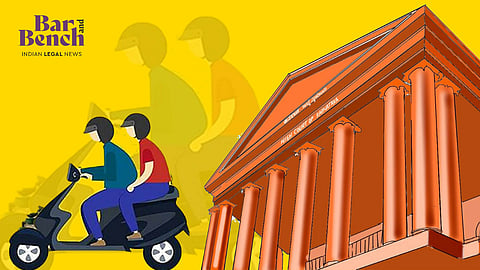
- Latest Legal News
- News
- Dealstreet
- Viewpoint
- Columns
- Interviews
- Law School
- Legal Jobs
- हिंदी
- ಕನ್ನಡ

In its recent submissions on the ongoing bike-taxi dispute, the State of Karnataka submitted that its Karnataka Platform-Based Gig Workers (Social Security and Welfare) Act, 2025 would protect the interests of any gig worker, including those working for platforms such as Uber, Ola, Zepto, etc.